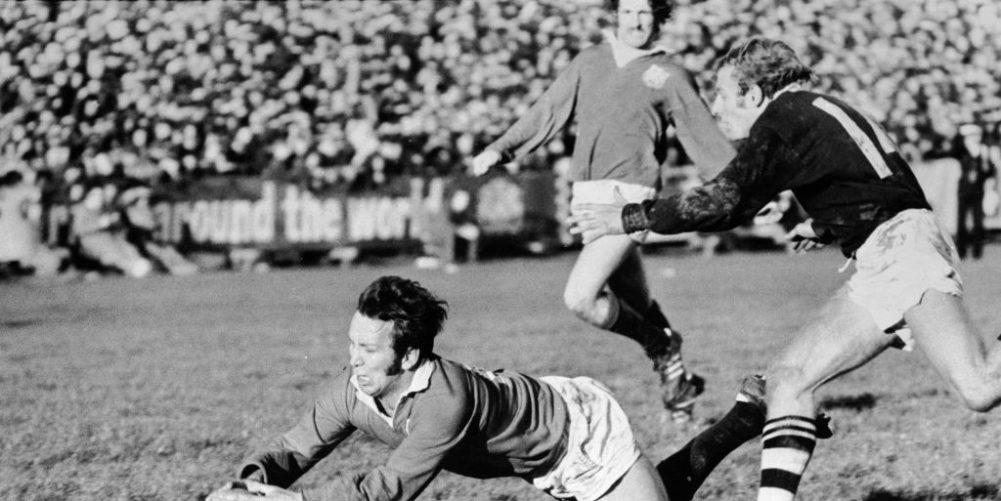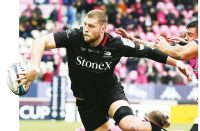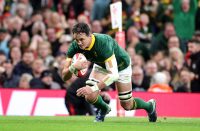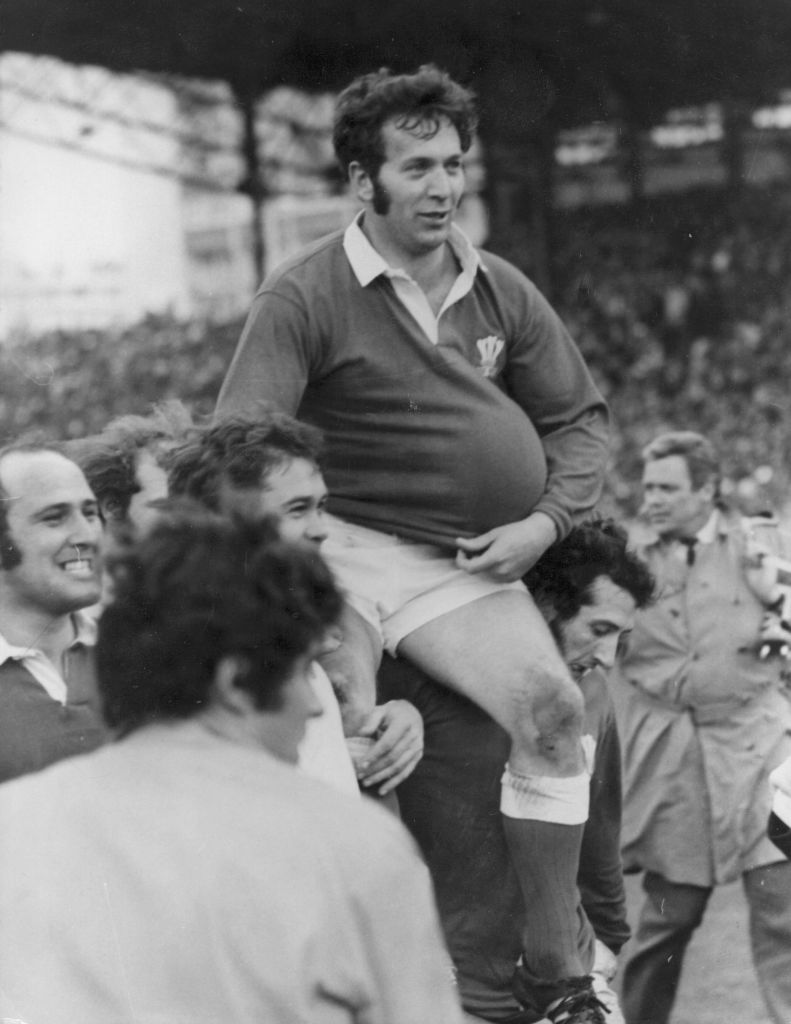Peter Jackson remembers the great Lions and Wales captain John Dawes
Long before he died on Friday morning, John Dawes had been elevated to a status reserved for the few who dared to change their sport for the better.
They belong to a rare category, one that cannot be defined by a single act no matter how historic like Joel Stransky and Jonny Wilkinson dropping goals to win extra-time World Cup finals. Doing justice to what the blacksmith’s boy from the coalfields around Chapel-of- Ease achieved over a period of time required a broader canvas.
And so those years have come to be known as the John Dawes era, bringing a golden glow to those who remember them in much the same way that Liverpool Football Club commemorates an era from the same time, the one named after another visionary from another tiny coalmining community, Bill Shankly.
In sharp contrast to a man who, when the mood took him, could sound like an Old Testament prophet, Dawes always kept his emotions in check but they shared a common goal, driven by the same zeal to find ways of putting their teams on a higher plane.
The late Cliff Morgan, a man of boundless generosity who valued style on any football field more than anything else, doffed his cap to Dawes more than a quarter of a century ago as a “marvellous distributor of passes, a real ringmaster”.
“I have to concede that the Welsh teams of the Sixties and Seventies, the John Dawes era, produced better rugby than we did,” he said, referring to the Fifties.
“This was because they had a plan which originated with Dawes when he was captain of London Welsh and which he carried with him as captain of Wales and the Lions.
“It was a very simple one: the players had to go out and enjoy playing their rugby. If you watched London Welsh in those early days, they loved it. But then Dawes had at his fingertips all the talent in the world.”
The most lavishly talented one of all, Barry John, once offered an illuminating insight into the virtues of a centre short of pace and shorter still in the art of elusive running. Neither deficiency prevented him from running the game in midfield like a five-star general.
“It is somewhat ironic that the Welsh back who rarely grabbed the spotlight just happened to be the one who held everything together,” John stated in his autobiography. “That man was John Dawes.
“If the public address man announced that John Dawes was missing through injury, the crowd would not bat an eyelid. In the dressing room, however, there would be a mood of panic because we knew just how important his presence was to the way we played.”
Dawes’ contemporaries swear to this day that he was the best captain they ever played under, thereby reinforcing his status as the supreme conductor.
His era began in the mid-Sixties when, armed with a first-class honours degree in chemistry from Aberystwyth University, he embarked on a teaching career in London.
It would take more than a Bunsen burner to set the English club scene alight but he set about it from day one at Old Deer Park as a newly-enrolled member of London Welsh RFC. As word of their exhilarating rugby spread, crowds flocked to see them like never before.
JPR Williams followed the Pied Piper there a few years later by which time they were leading the club game a merry dance.
“Although quiet and modest, he was the instigator of many of our attacking methods,” Williams said. “As the midfield general, he kept the forwards and backs running.”
Dawes dared to defy the ancient tenets about the game revolving around a pack full of plodding shire horses. He rebuilt a team based on superior skills and fitness, qualities which enabled London Welsh to feast on a starvation diet of possession.
“Dawes’ contemporaries swear he was the best captain they ever played under”
They began the revolution with a daring brand of Total Rugby, a concept most graphically summed up by the famous Neath flanker Dai Morris after the hitherto all-conquering visitors had spent a Saturday afternoon at Old Deer Park chasing shadows. He likened the experience to “playing the Harlem Globetrotters with studs”.
Six of that London Welsh team – Mervyn Davies, Gerald Davies, Geoff Evans, Mike Roberts, John Taylor and JPR – belonged to the triumphant Lions tour of New Zealand in 1971 hot on the heels of winning a Grand Slam in Paris. Dawes, captain of both teams, stretched the London Welsh six to a magnificent seven.
In almost half a century before 1971 nobody had led the Lions to a winning series in New Zealand. Another half century later, Dawes is still the only one and while his Test career ended on that historic day at Eden Park, he came back to beat the All Blacks once again for old time’s sake, leading the Barbarians at the Arms Park in 1973 when Gareth Edwards scored the try of tries.
Now Sir Gareth, he picks out one of his old captain’s most striking qualities, his unflappability.
“He was always calmness personified amid the chaos of a Test match. People don’t understand how valuable it is to have someone like that on your side, someone who can see the bigger picture and calm everyone down.”
Dawes – ‘Syd’ to his peers – coached Wales to two more Grand Slams either side of taking the Lions back to New Zealand in 1977, a grim tour of unrelenting rain and bickering in stark contrast to the one he had skippered under Carwyn James’ cerebral direction.
After ten years as their fulltime coaching organiser, Dawes and the WRU went their separate ways more than 30 years ago, never to be reunited.
He would not hold another full-time position in an increasingly muscle-bound game which he would have found a hard watch.
He passed away after a long illness at the age of 80, his place in the Pantheon long assured.
























